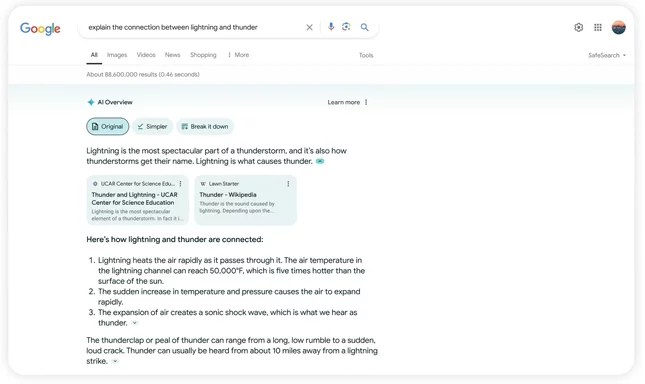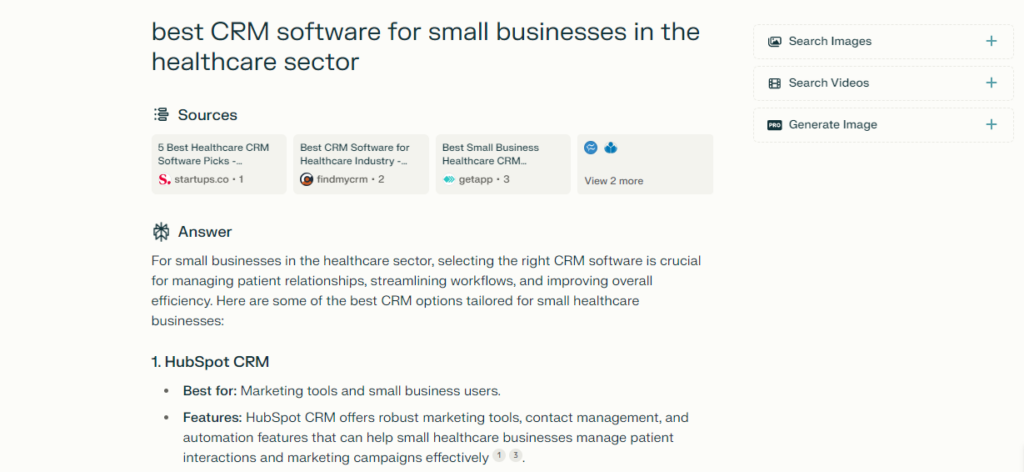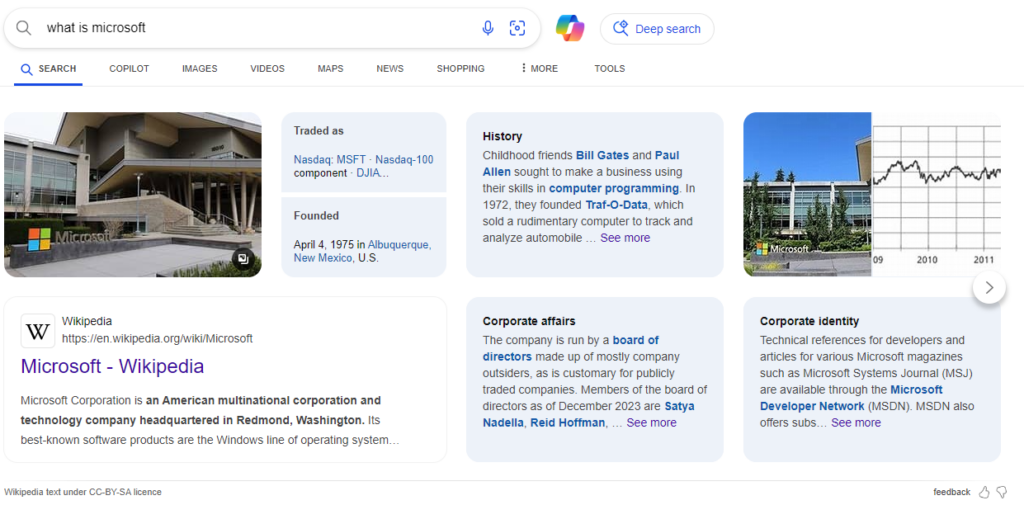Generative AI Search and What It Means for Business
- by Ilona K.

Table of contents
Traditional search engines are giving way to generative AI search, a technology that understands user intent and delivers comprehensive, conversation-like answers. This shift has major implications for businesses with a web presence. Discover how generative AI search works and the ways to stay ahead of the curve.
The way we search for information online is undergoing a significant transformation. Keyword-based search engines, while still dominant, are evolving to incorporate the power of artificial intelligence (AI).
Known as generative AI search, this new wave of search technology promises a more intuitive and user-friendly experience, with profound implications for businesses with a web presence. Announced in May 2024, Google’s AI Overviews, planning and research capabilities, and AI-organized search results are all examples of generative AI in search.

As an online business name, understanding how generative AI search works and its impact on SEO (Search Engine Optimization) is crucial for staying on top of competition.
How Generative AI Search Works
Search engines typically rely on keywords to understand what users are looking for. You type in a query, and the search returns results that best match those keywords. However, this approach requires users to go through multiple results before finding the right match for their initial query.
Generative AI search brings in a more sophisticated approach. Google AI Overviews, AI-powered search in Bing as well as specialized AI search engines like Perplexity can analyze big data, understand natural language, and grasp the context behind a user's query. Instead of simply matching keywords, they aim to deliver conversation-like answers directly on the search results page.
Here’s how it works.
- You search for "best CRM software for small businesses in the healthcare sector."
- Generative AI search engines might analyze reviews, user experiences, and feature comparisons across various CRM platforms to respond to this query.
- They then provide a personalized recommendation tailored to your specific needs.

This shift from keyword matching to understanding user intent and providing a ready response has significant implications for businesses.
Impact on Online Businesses
The rise of generative AI in search will inevitably impact businesses with websites relying on both organic and paid search as their main traffic generators. Some key implications include:
- Reduced visibility in search. If an AI snippet is shown, the first traditional link in Google search might visually drop by 1,200 pixels on average - which is equal to almost the full screen on desktop.
- Potential organic traffic drop. According to Gartner, an anticipated drop in traffic to the web from search engines will be around -25% by 2026.
- Unpredictable search ads positioning. Google mentioned they are testing search ads before, after and within AI overview snippets, while the latter will be automatically selected from the existing campaigns.
- Measurement complexities. While Google will begin reporting AI Overview impressions and clicks in its Search Console reporting, it won’t differentiate those generated by traditional search and AI Overview.
- Difficulty to control brand positioning. Online brands will have little to no influence on what AI search will display for their brand terms - it might be an amalgamation of press articles, social media discussions and results from your website. If any of those are negative or outdated, they will still come up in the AI search snippet.

Should it affect the way you choose domain names for your business? Not really. Exact-match generic keywords in domain names, especially for small businesses, are still a strong SEO strategy. The difference is that now you can’t stop your search optimization efforts at domain name only to succeed in a generative AI search environment.
For example, if you have a “bestshoestore.it.com” domain name for your footwear business, you also need to make sure your website has informative, high-quality content that resonates with your audience and user intent. Generative AI search also favors strong brand presence online across multiple platforms beyond just the website, which can all support your efforts in getting search visibility.
A recent discovery from Google search documents showcases that investing in content creation, building backlinks, and establishing yourself as an authority in your niche will be crucial for success in the age of generative AI search.
How to Succeed in Generative AI Search
When Google just started experimenting with AI-powered search, we have shared some tips to prepare your business for the change. With generative AI search in full swing, you can expand your website experiments with a few actionable steps.
- Content is king. The importance of high-quality website content cannot be overstated. Move beyond keyword stuffing and create informative, engaging copy and visual content that caters to user intent. Familiarise yourself with E-E-A-T guidelines (Expertise, Experience, Authority, Trustworthiness) and focus on providing in-depth answers to your audience's questions, provided by subject matter experts. Think in terms of ‘how-to’ guides, in-depth comparisons and practical tips.
- Embrace UX-first design. Page experience is another important aspect of succeeding in the new era of search. Make sure that each time your users interact with your website, they are offered an enjoyable and easy-to-use experience - generative AI can help you with ideas and experimentation.
- Optimize for natural language. With growing popularity of generative AI assistants like ChatGPT, users become more accustomed to creating detailed prompts to get to a desired result. Consider optimizing your content for conversational queries expressed in a natural language. This might involve using natural language and focusing on long-tail keywords that people would use in spoken language. You can start with researching questions relevant to your field with free tools like AnswerThePublic, and create content directly optimised for those questions.
- Build brand authority. Invest in brand building strategies such as social media marketing, influencer outreach, and participating in industry discussions. The stronger your brand identity, the more likely you are to stand out in a generative AI search environment. Don’t forget thought leadership - publish guest articles on authoritative websites in your niche, and create useful videos to set yourself as an industry leader.
To sum up, generative AI search isn't a threat, it's an opportunity for businesses with a web presence. By focusing on user intent, building a strong brand, and creating high-quality content, your business can thrive in this new search landscape.
Need inspiration to grow your web presence? Visit it.com Domains blog and follow us on social media.

Read also


